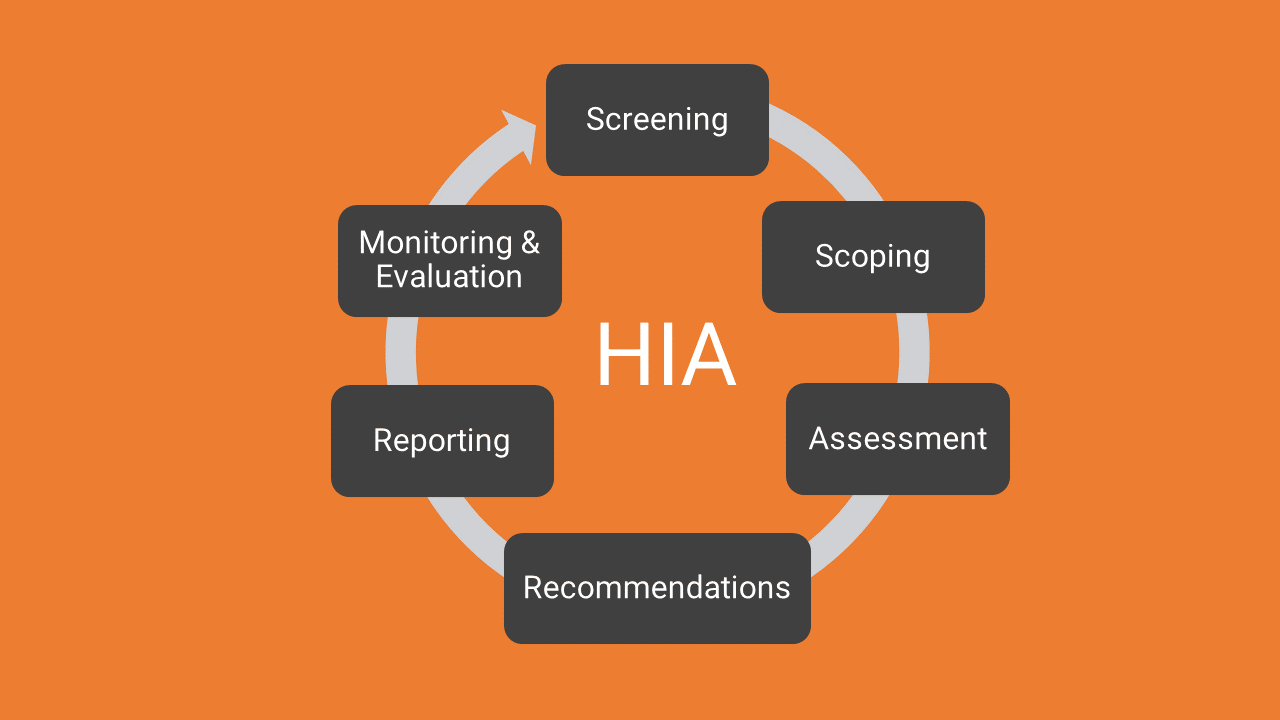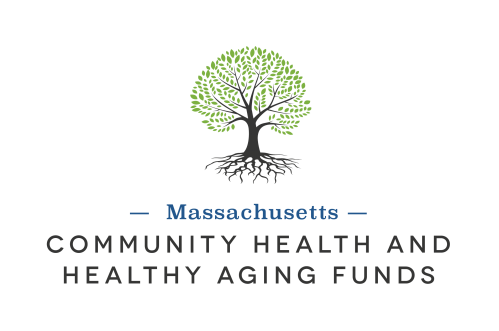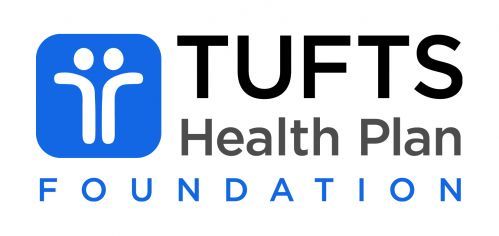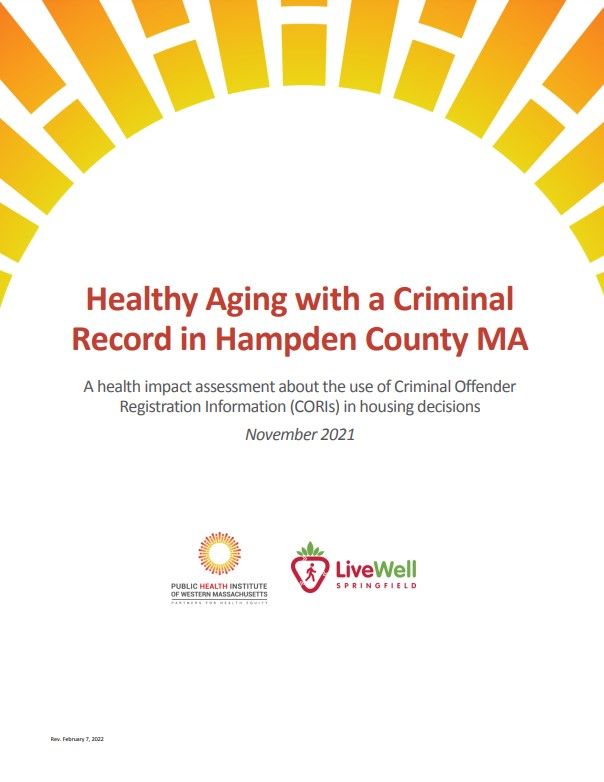Healthy Aging with a Criminal Record in Hampden County MA (HIA)
About the Project
PHIWM conducted a health impact assessment (HIA) to answer the question, “If housing providers changed policies and practices about criminal background checks, what affect would that have on health?
Why Conduct this Health Impact Assessment?
In 2019, the Public Health Institute of Western Massachusetts’ (PHIWM) Age Friendly City housing assessment found that older Black men in Springfield had a shared experience of not being able to secure affordable housing because of CORI (Criminal Offender Record Information) checks. The 2018 City of Springfield Housing Study concluded the same - CORI checks create affordable housing access inequities for Black men in Springfield, compounding existing housing inequities experienced by people of color in the City of Springfield and surrounding areas. Blacks and Latinos are consistently incarcerated in the Hampden County Jail at a rate about 3.5 times that of Whites[i], which means CORI checks have a disproportionate impact on people of color. Additionally, the affordable housing stock is limited.
Goals
The goals for this health impact assessment (HIA) about the health impacts of changing practices around the use of criminal background check in affordable housing decisions are:
- authentically engage a diverse representation of stakeholders, including older adults of color, in the HIA;
- make predictions and recommendations about selected policies and practices impact on equity and health in target communities;
- monitor changes in policy or practice through the implementation phase.
What is an HIA?
HIA is a research and public engagement process designed to make predictions about how a policy or practice change would impact health and equity. HIA is a six-step process that includes:
- Screening – identify a policy or practice change that is of most concern to communities facing inequitable health.
- Scoping – identify research questions of greatest interest to community stakeholders and decision-makers, and create the research and engagement plan.
- Assessment – gather baseline data and make predictions about how health and equity will change if the policy or practice changes are implemented.
- Recommendations – identify health- and equity-based recommendations responsive to the predictions made in the HIA.
- Reporting – create a report and other communications products to disseminate HIA findings in a strategic and inclusive way.
- Monitoring and Evaluation – continue engagement of all stakeholders and collect data to insure recommendations are implemented.

The Policies & Practices Under Study
Our Advisory Committee directed us to study the impacts of 6 policies or practices:
- Limit the use of CORIs in housing application decisions to only mandatory HUD guidelines* once eligibility is determined
- Establish formal partnerships between housing providers and reentry organizations, behavioral health providers, and organizations that provide services to people experiencing homelessness and housing instability.
- Allow mitigating circumstances to be submitted during the initial application period without any requirement to disclose past convictions
- Create explicit criteria for denial that is available publicly
- Share population-level data about number of people denied housing, along with reasons for denials (including criminal background check), number of people requesting hearings, and the results of those hearings.
- Permit family members to house people with a CORI, excepting mandatory HUD guidelines
* The only criminal background that HUD mandates exclusion from public housing are 1) being registered on the lifetime sex offender registration list and 2) conviction for producing methamphetamines on federal property. Exclusion for any other crimes is left to the discretion of individual LHAs.
HIA ADVISORY COMMITTEE
- Jasmine Akuffo, National Association of City and County Health Officials (NACCHO)
- Meris Bergquist, Mass Fair Housing Center
- John Fisher, Way Finders
- Alyssa Golden, Community Legal Aid
- Samantha Hamilton, LiveWell Springfield
- Richard Johnson, Debra Hunt Center, New North Citizen’s Council
- Denise Jordan, Springfield Housing Authority
- Madeline LaSanta, All Inclusive Support Services, Hampden County Sheriff’s Department
- Gerry McCafferty, City of Springfield Office of Housing
- Richard Mills, LiveWell Springfield
- Lamont Scott, Men of Color Health Awareness (MOCHA)
- Henry Oostrom-Shah, Boston University School of Law
- Kathleen Szegda, Public Health Institute of Western Massachusetts
- Marie Claire Tran-Leung, Sargent Shriver Center on Poverty Law
REPORTS & PRESENTATIONS
In this report we explore how potential changes to housing policies and practices regarding criminal background checks might impact the health of residents, specifically older people with a CORI. We are grateful for your time in reading and digesting this important health impact assessment (HIA). Housing is paramount to all human beings’ wellbeing.




